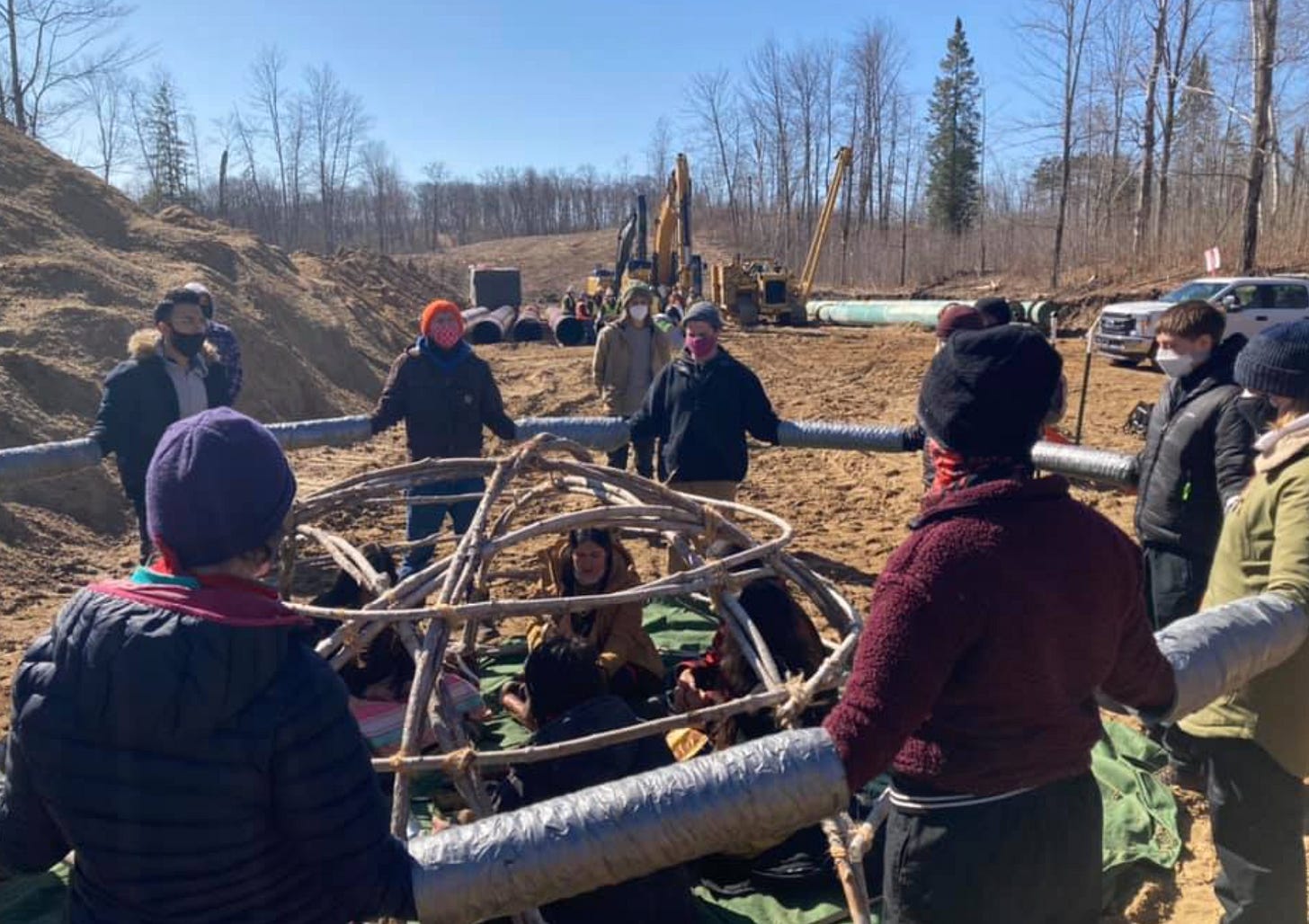Silence from Biden as Line 3 direct actions accelerate
The Biden administration remains silent while Indigenous women continue to battle Line 3 with their bodies.

A waaginogaaning is the traditional structure of Anishinaabe peoples. On Thursday, seven Anishinaabe water protectors carried one into a construction site for Enbridge’s Line 3 tar sands pipeline, and sat inside to pray.
They were not…


